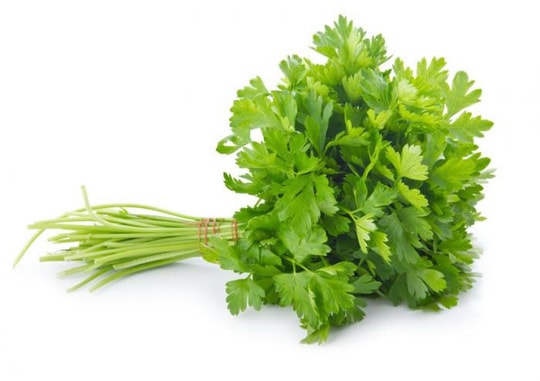Some herbs are good for the brain
Parsley, celery, red peppers and some other plants can stimulate the formation of human brain cells and strengthen the connections between those cells.
A study by Brazilian scientists at the Federal University of Rio de Janeiro recently published in the journal Advances in Regenerative Biology suggests that a flavonoid called apigenin found in cilantro, parsley, celery, red peppers and some other plants can stimulate the formation of human brain cells and strengthen the connection between those cells.
The team tested the effects of apigenin on stem cells—cells that can develop into other types of cells—and found that the stem cells could transform into neurons within 25 days. What’s more, they found that the connections between the newly formed cells, called synapses, became stronger and more sophisticated. Further studies showed that apigenin promotes the formation and connection of neurons by binding to estrogen receptors, which influence the growth and development of the nervous system, as well as its function.
 |
| Coriander and some other plant spices contain apigenin Photo: MNT |
Previous studies have shown that estrogen can slow the progression of Alzheimer’s, Schizophrenia, Parkinson’s, and other neurodegenerative diseases, as well as depression. Other studies have found that apigenin and some of its flavonoids have benefits for learning and memory, helping to preserve and enhance brain function. The team says their findings offer promising new therapeutic possibilities for a variety of neurological disorders.
Visit the Health section to learn the secrets of delicious and standard eating, refer to common diseases in life, women's 'private area' diseases and very effective remedies for mothers and babies.
According to Laborer






